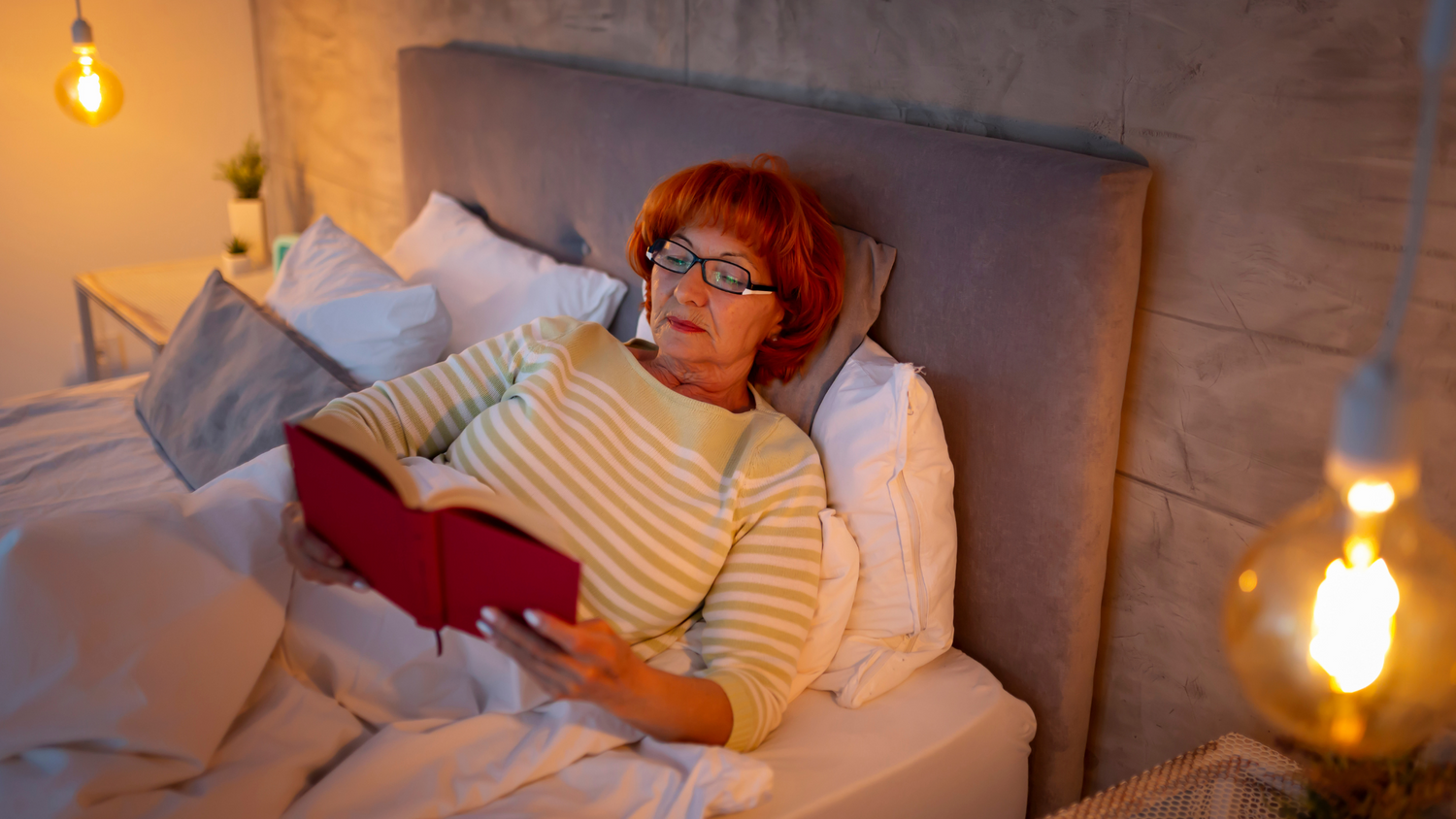How to Get a Better Night’s Sleep During Menopause
Getting a good night’s sleep is critical for your mental (and physical) health—just ask anyone who has dealt with long-term insomnia. But throughout menopause, almost half of women report trouble sleeping and disrupted sleeping patterns. If you’ve experienced this frustrating symptom, know that you’re not alone and you don’t have to accept it as part of “a new normal.” Here’s how to get quality sleep during menopause.
What Insomnia Is—And Why It Happens
Quality sleep involves two things: being able to fall asleep relatively easily and remaining asleep through the night. The medical definition of insomnia includes symptoms like taking more than 30 minutes to fall asleep, waking up before you’d like to, and not feeling rejuvenated by the amount of sleep you manage to get.

Your Sleep During Menopause
During menopause, women are much more likely to experience insomnia. Various factors cause menopausal sleep loss, including hot flashes (since they often wake women in the middle of the night), producing less progesterone (the hormone that promotes sleep), and sleep apnea due to the drop in estrogen. Melatonin production also decreases. Other conditions that are correlated with menopause, like anxiety and depression, can cause a reduction in your sleep quality. Worsening the problem is that not getting enough sleep can increase your anxiety, making it more difficult to fall asleep.
Why Sleep Is So Important
Getting enough sleep is a cornerstone of a healthy lifestyle. When you don’t get enough, risk factors for mental and physical health—as well as safety—rise drastically. For instance, sleep deprivation can lead to problems retaining information, unsafe driving, difficulty maintaining a balanced mood, and being more prone to error. Not getting enough sleep means your livelihood, relationships, and sense of wellbeing are all at stake, so it’s important not to write this off as yet another symptom of menopause that you must endure.
How to Get Better Sleep During Menopause
Lifestyle factors can significantly impact the quality of your sleep. Sticking to a schedule where you go to bed and wake up at consistent times every day can help train your body to sleep consistently. Also, avoid long naps around bedtime if possible to help maintain your natural circadian rhythm. Regular exercise has been proven to increase sleep quality—but exercising before bed may counteract its beneficial effects. Stopping smoking and limiting alcohol intake can improve your sleep, and may help mitigate other menopause symptoms at the same time. Lastly, try taking your caffeine habit down a notch and wearing cool, breathable clothes to bed.

Creating an environment conducive to sleep supports better sleep during menopause. A cool, dark room is a great start, but don’t forget to limit your before-bedtime screen time, as well. Meditation, yoga, or a warm bath can also help your brain relax and wind down before bed.
You can also try hormone replacement therapy, which effectively mitigates menopausal symptoms. Yet, due to the increased risk of cancer, heart disease, and dementia, this is not a viable option for many women. Sometimes, SSRIs (a form of antidepressants) can help improve sleep quality, too. Ask your doctor how safe these options are for you if your sleep quality doesn’t improve after changing your lifestyle habits. The most important point is that you shouldn’t stop advocating for your health until you find a solution. Sleep is self-care, and you deserve a great night’s rest.





